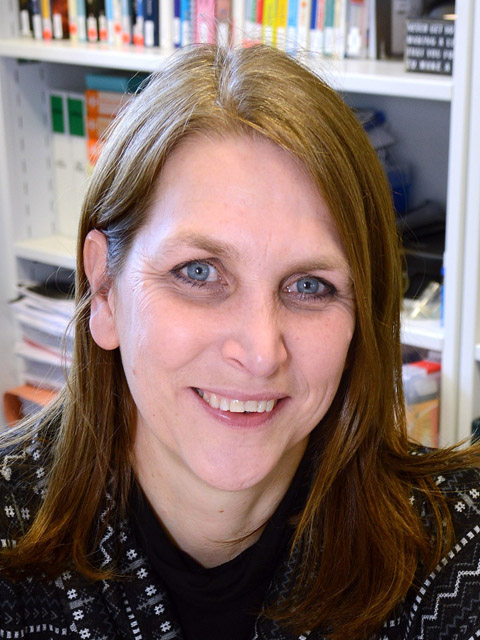Prof. Victoria Haines is a Professor in User Centred Design in the School of Design & Creative Arts at Loughborough University and a Fellow of the UK’s Advance HE.
Victoria’s research focuses on how people interact with their environment and the products and services they use, particularly in the domestic energy field. This expands understanding of how and why people use energy, and how energy efficiency products, services and systems should be designed. Her research aims to bridge the gap between users and technology, often working with engineers and technology developers to ensure user needs are considered and included in future energy systems. She has worked on many large-scale research projects, primarily funded by EPSRC, bringing the human dimension to engineering and technology focused projects. She has also completed work for the UK Government, the Energy Systems Catapult, Energy Technologies Institute and Innovate UK.
Victoria has an extensive track record of funded research projects as a Co-investigator, including:
- Home Heat Health: Sleep in the City (total grant value £1.2m, 2022-2026, exploring the effects of summertime heat on sleep and wellbeing)
- HP-FITS (total grant value £1.3m, 2020-2025, developing heat pumps with thermochemical stores)
- LoT-NET (Programme Grant, total grant value £5.4m, 2019-24, focusing on future low temperature networks)
- 4S-DHW (total grant value £1.25m, 2016-19, exploring domestic hot water use
- i-STUTE (total grant value £5.3m, 2013-18, understanding future domestic thermal storage)
- DEFACTO (total grant value £1.5m, 2012-17, studying smart heating control use in a cohort of 180 UK homes over 3 years)
Victoria teaches across the Design programmes at Loughborough University at undergraduate and postgraduate level. She leads Understanding People 2, a part B module introducing students to qualitative primary data collection and analysis and developing user requirements that provide opportunities for design. She also supervises User Experience Design major projects and supports other modules including: Shaping Materials in the Circular Economy, and Shaping Technologies. Victoria also teaches on the ERBE Centre for Doctoral Training, introducing user centred design to doctoral researchers focused on energy resilience and the built environment.
Victoria is an experienced supervisor of doctoral researchers and examines regularly. Examples of past PhD completions supervised by Victoria include:
- Evaluating the householder retrofit journey, Ireland’s existing retrofit services, and future directions for success in Ireland’s retrofit industry (Orlaith McGinley, 2024)
- Using domestication theory to support the transition to heat pumps in UK owner-occupied homes (Charlotte Shields, 2024)
- The Student Experience of Informal Learning Spaces in UK Campus Universities (Caroline Pepper, 2024)
- The energy-saving potential of domestic zonal space heating controls: a socio-technical assessment of semi-detached and owner-occupied UK homes (Dan Wright, 2021)
- Investigating the relationship between operational daylight performance and daylight metrics in UK classrooms (Nafsika Drosou, 2020)
- Energy efficiency refurbishment of UK owner-occupied homes: The householders’ perspective (Kate Simpson, 2017)
- Heating use in UK homes (Ashley Morton, 2016)
- Energy supplier involvement in English fuel poverty alleviation: a critical analysis of emergent approaches and implications for policy success (Lauren Probert, 2015)
- Thermal Comfort in UK Homes: How suitable is the PMV approach as a prediction tool? (Keyur Vadodaria, 2014)
- Creature Comforts: An exploration of comfort in the home (Andrea Burris, 2014)
- Applying user-centred design to the service of installing renewable heating technology into UK social housing properties (Natalie Moore, 2014)
- Integrating user centred design into the development of energy saving technologies (Becky Mallaband, 2014)
She currently supervising in the areas of heat pump adoption, domestic energy retrofit and the meaning of home.
